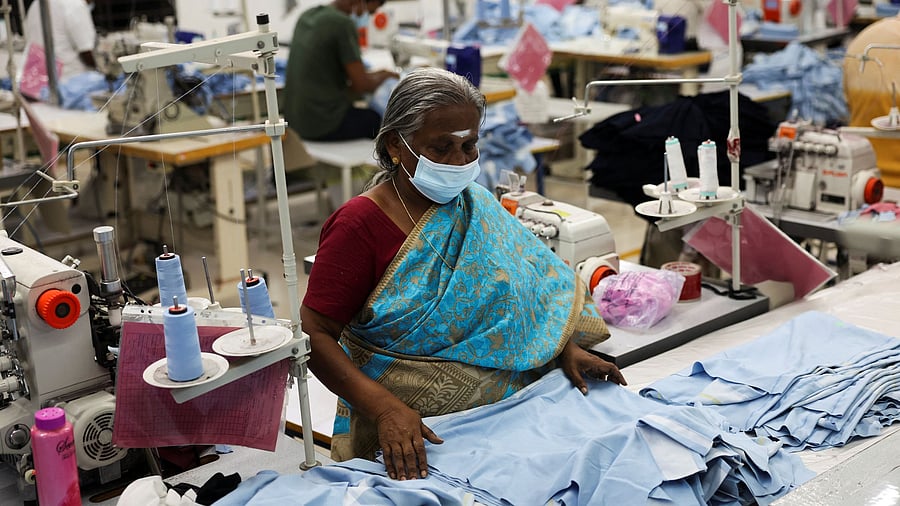
A woman works at a garment factory in Tiruppur, in Tamil Nadu.
Credit: Reuters photo
Bengaluru: Banks are giving micro, small and medium enterprises (MSMEs) pain while availing loans and bury them in excessive paperwork, said Shobha Karandlaje, Union Minister of State for Micro, Small and Medium Enterprises and Labour and Employment, Government of India, on Friday.
She, along with Deputy Chief Minister DK Shivakumar, urged banks to be more liberal in supporting MSMEs at the India MSME Conclave 2025, held on Friday.
Shivakumar reiterated that the Karnataka government will have a separate department for small and medium enterprises, as promised by Chief Minister Siddaramaiah earlier this month.
MG Balakrishna, President for the India MSME Conclave 2025, added that the state government has already approved in principle an exclusive secretary for MSMEs.
Shivakumar also talked of the government’s plan to spend Rs 1 lakh crore in developing Bengaluru, mentioning a timeline of 4-5 years for the investment.
He emphasised the importance of reducing dependency on other nations and that skill is India’s strength, adding that the cost of labour in the US is 10 times what it is in India, and that in China is four times India’s.
“As we march towards our collective vision of a Viksit Bharat by 2047, MSMES will continue to be at the heart of India's growth story,” said Prime Minister Narendra Modi in his written address.
The Federation of Karnataka Chambers of Commerce and Industry (FKCCI) has long-demanded such changes in MSME governance, including the creation of a dedicated department for MSMEs. Their other recommendations include a reduction in minimum wages in the state, an exclusive MSME policy, rationalisation of costs such as power tariffs, property tax, and garbage cess, and a special land acquisition officer to provide land for MSMEs through Karnataka State Small Industries Development Corporation (KSSIDC).
The Karnataka Small Scale Industries Association (KASSIA) has also rallied for plugging gaps that have long-challenged MSMEs, such as market access, capability and compliance, and policy awareness.
Pawan Kumar Burman, Assistant General Manager and ECGC pointed to the higher risk position of MSMEs and predicaments such as not being able to pledge collateral at the bank.
If exports get rejected, especially in case of perishable items, there is no insurance available, he added.
Panelists in various sessions encouraged ministries to formalise standards and banks to simplify procedures. MSME players also complained of a minimum export experience requirement of at least 5-7 years to qualify for being allocated particular tenders.
